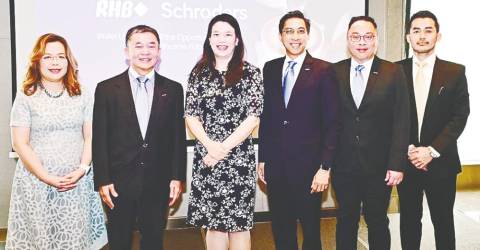ADVERTISE HERE
KUALA LUMPUR: With its phased approach, Malaysia is confident it can achieve its environmental, socia and governance (ESG) goals within seven years or less, said Investment, Trade, and Industry Miistry (Miti) deputy secretary-seneral (industry) Datuk Hanafi Sakri.
“The i-ESG Phase 1.0 lays the groundwork and fosters the development of a robust ecosystem to help ensure companies’ readiness to meet the more rigorous demands of Phase 2.0 from 2027 to 2030. This phased, progressive approach is extremely important to ensure Malaysian companies can continue or start to fulfill the growing demand for sustainable products, and the requirements for ESG reporting in export destinations, such as the United States and the European Union (EU),” he said in his keynote speech at ESG Evolve 2023 Conference & Exhibition today.
Malaysia will begin with the Phase 1.0 – “Just Transition” from 2024 to 2026, followed by the Phase 2.0 – “Accelerate ESG Practices” from 2027 to 2030.
During Phase 1.0, manufacturing companies, including MSMEs, will be supported on starting their sustainability/ESG journey through self-readiness assessment, outreach, training/mentoring programmes and financing options.
These include i-ESGReady, which is a readiness assessment programme, and iESGStart, which offers a practical guide with step-by-step instructions, illustrative examples and templates. Both are meant to be references for manufacturing businesses to begin their sustainability journey.
Miti has also conducted KenalESG outreach and awareness programmes in Kuala Lumpur (200 companies), Penang (190 companies), Johor (130 companies), Pahang (150 companies) and Sarawak (100 companies) to introduce them to the i-ESG Framework.
Hanafi said it is imperative that due consideration is given to MSMEs within the manufacturing sector, ensuring they are not left to navigate the complexities of adopting sustainable practices on their own.
“This is particularly crucial as MSMEs may lack the financial resources, capacity or technical expertise related to ESG principles.
“To ensure the success of sustainable practices across the entire manufacturing landscape, targeted assistance, capacity-building initiatives, and accessible resources must be provided to MSMEs.”
Hanafi said all programmes under the Phase 1.0 will help companies to identify gaps and introduce policies and support systems.
“For MSMEs, this is extremely important, to ensure participation in ESG-compliant public listed companies and multinational corporation vendor ecosystems as well as access to ESG-sensitive export markets,” he said.
Additionally, Hanafi said the government is committed to facilitating transition for companies by organising informational clinics.
“These sessions are specifically designed to provide guidance on utilising the iESGReady and iESGStart. The aim is to empower companies with the knowledge and skills necessary to navigate the intricacies of these tools successfully,“ he added.









 English (US) ·
English (US) ·